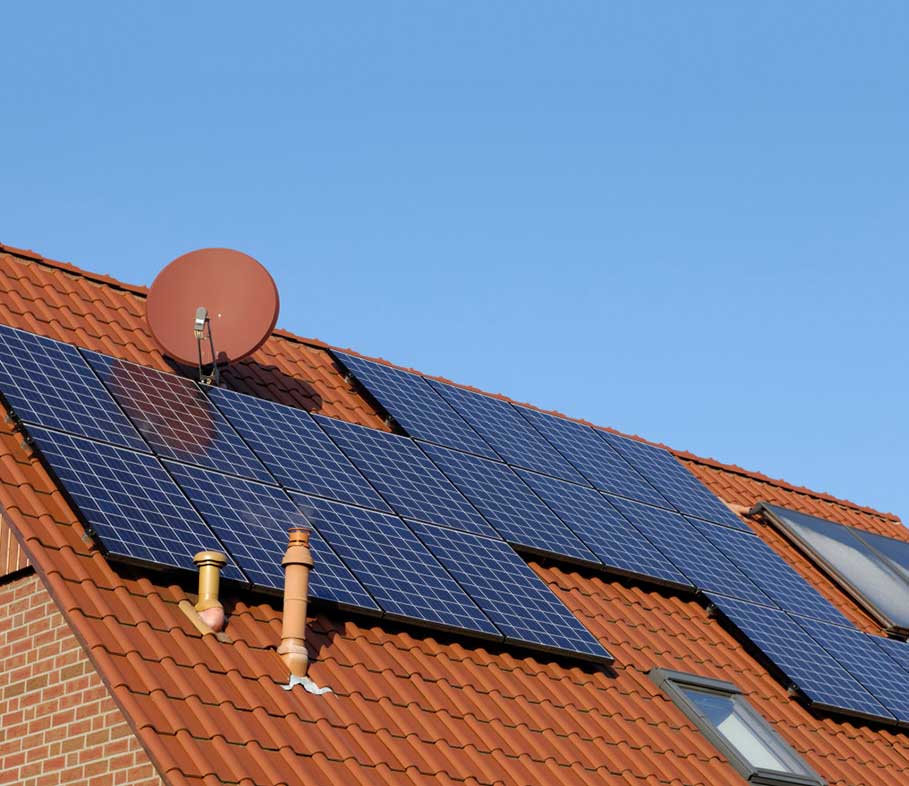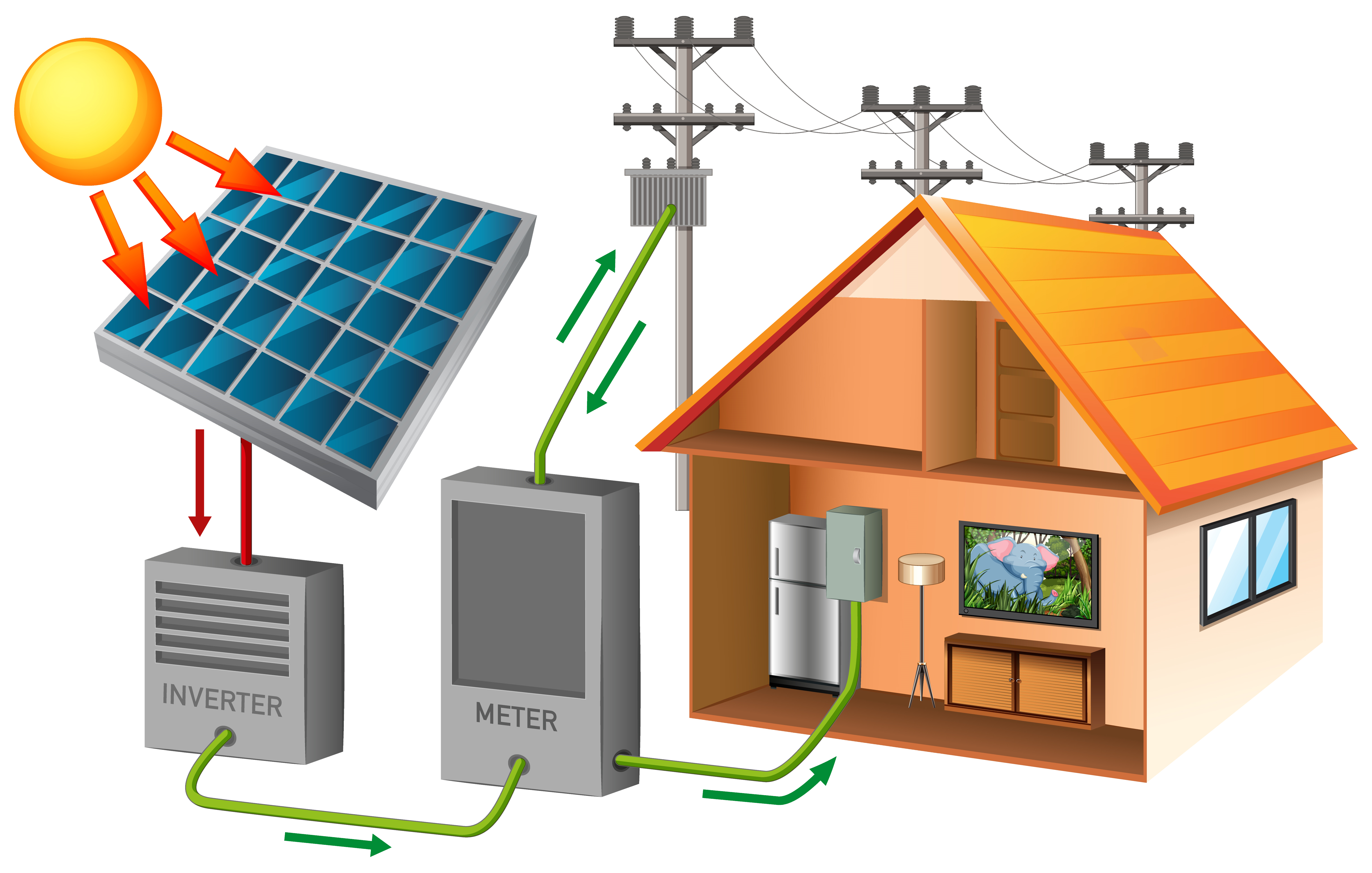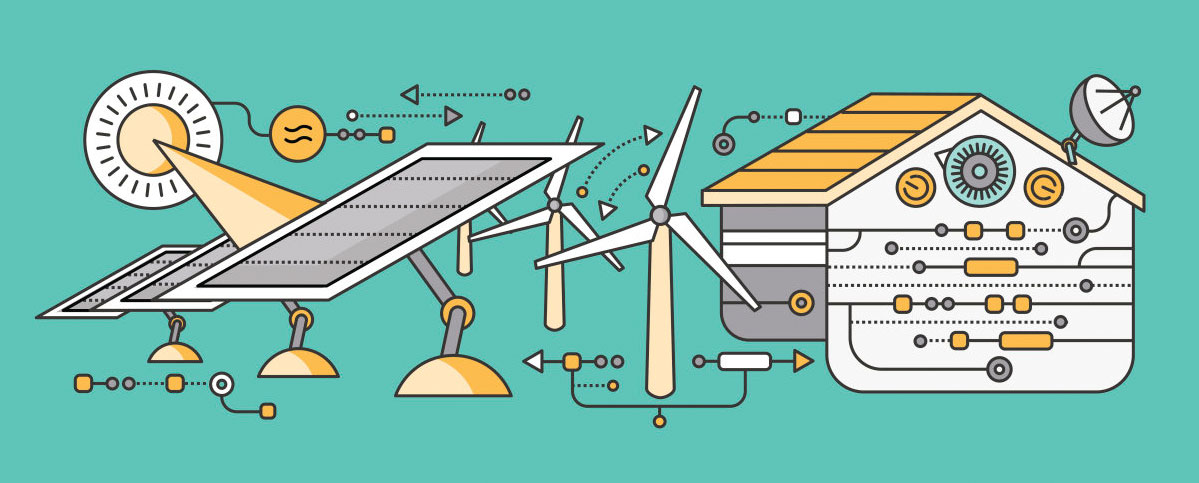- 1300 111 326
- sales@ecocarecarbon.com.au
- English
- Search

Our commitment to quality and service is unparalleled in the industry. In an industry that is rapidly innovating, it's best to have a trusted partner to help you navigate your options so that you get the maximum return on your renewable energy investments. A solar installation is the safest, highest return investment you can make.
EcoCare Carbon Solutions offers premium solar systems guaranteed to perform in the harsh Australian climate. Get connected with our professional solar expert for an obligation free quote today and place your residential solar power installation project in the hands of a team you can trust.
STEP 01
The Cost Benefit Ratio
STEP 02
We Tailor A Solar System For Your Home
STEP 03
Solution&Design
STEP 04
Final Design
STEP 05
Installation
STEP 06
Maintenance& Support

Solar panels are made out of photovoltaic cells that convert the sun’s energy into electricity.
Photovoltaic cells are sandwiched between layers of semi-conducting materials such as silicone. Each layer has different electronic properties that energise when hit by photons from sunlight, creating an electric field. This is known as the photoelectric effect – and it’s this that creates the current needed to produce electricity.
Solar panels generate a direct current of electricity. This is then passed through an inverter to convert it into an alternating current, which can then be used by the home or business the solar panels are attached to. Our home appliances such as the fridge and dishwasher use this power instead of drawing power from the electricity grid.
You can be up and running in no time: residential solar panel installation will generally take no more than two days when installed by a Clean Energy Council accredited installer.
Solar panels are normally covered for 20-25 years once they are installed and even once their warranty has run out, they are expected to last for another 25 years because they need such little maintenance and upkeep.
Why Solar Panels
Solar panels are made of photovoltaic (PV) cells, which turn sunlight into electricity. This electricity can then be fed into your home's mains electricity supply.

Cheaper electricity bills: With an increase in electric gadgets comes an increase in utility bills. You can reduce your electricity bills by installing solar panels on your house.
Energy produced by solar panels is completely free, and surplus energy can always be stored for future use or exported back to the grid.
Earn money back: Once you have your residential solar panel system installed, you can make money by selling surplus electricity back to the grid. This is called a feed-in tariff. Currently, there is no nationalised program in Australia, feed-in tariffs differ from state to state and from retailer to retailer. For more information on feed-in tariffs in New South Wales and Victoria, you can click on the links below:
New South Wales
https://energysaver.nsw.gov.au/households/solar-and-battery-power/feed-tariff-rates
Victoria
https://www.energy.vic.gov.au/renewable-energy/victorian-feed-in-tariff
Reduce your carbon footprint: Switching to solar energy setup significantly reduces your carbon footprint as it is a green, renewable source of energy. Unlike traditional electricity generators, like fossil fuels, coal, and oil, solar power does not release harmful carbon dioxide or other pollutants.
Estimates also show that domestic solar panel installation could save around one tonne of CO2 per year, which means just one installation can offset approximately 25 tonnes of CO2 over its lifetime.
Year-round efficiency: Solar panels can work efficiently all year round. While they work optimally during the sunny months, they also produce a considerable amount of electricity during cloudy days and in the wintertime.
Low maintenance: Solar panels have an average lifespan of 25-30 years, and require only little maintenance over these years. A good quality inverter might need to be changed every 10-15 years, but apart from that, you can enjoy the solar benefits under normal conditions.
Independent from the grid: Solar panels are ideal in remote areas where extending power lines to connect with electrical power grids would be too expensive. Solar PV panel installation is an affordable, effective solution for remote homes in rural areas of the country.
There is also the possibility of integrating solar batteries into your solar panel system. Solar batteries store the energy gathered by solar cells, saving it for rainy days or for use throughout the night.


What is it all about and how much can I save?
The Victorian Solar Homes scheme was launched in 2018 and after being paused briefly, re-opened from July 1st, 2019. The aim of the Victorian government solar rebate scheme is to make it easier for Victorians to access and install solar power system at home. With the Victorian solar rebate scheme, you could save up to $1,850 from the price of a brand-new solar system.
To further reduce installation costs, householders can apply for an interest-free loan, for an amount equivalent to their rebate amount. In line with the existing rebate, the new interest-free loan can be applied up to an amount of $1850. If your total system cost is less than $3700, there will be no upfront cost. The loan is required to be repaid over four years or can be repaid sooner in one lump sum.
At EcoCare, we make going solar simple. Our professional team will help you choose the best system to suit your needs and make sure you are saving the maximum amount of money every month. We only supply the very best products back by long warranties.
For all Victorian Solar Rebates households must fulfill the following criteria:
Your property is existing (not planned or being built) and is valued at less than $3 million.
You are the owner-occupier of your home.
You have a combined household income of less than $180,000 per annum (before tax).
Your home does not have an existing solar PV system.
Small-scale Renewable Energy Scheme
Overview
Households and small businesses across Australia that install a small scale renewable energy system, i.e. solar may be able to receive a benefit under the Small-scale Renewable Energy Scheme (SRES) to help with the purchase cost.
Benefits
Installing an eligible system allows the creation of Small-scale Technology Certificates (STCs) with a value that can be redeemed by selling or assigning them. The number of STCs created is based on:
the amount of renewable electricity the system produces or the amount of electricity consumption it reduces
the climate region where it’s installed
The STC Scheme: Small-scale Technology Certificate
Every kilowatt of solar installed in Australia generate STC certificates, which the property owner can assign to the solar installer, in exchange for a discount.
The STC scheme is designed to be phased out over a period of 15 years, ending in 2030.
Who can be eligible for STCs? Virtually everyone is eligible! That’s why you should be getting solar sooner rather than later and start enjoying fantastic saving on your energy bills!
REGISTER YOUR INTEREST